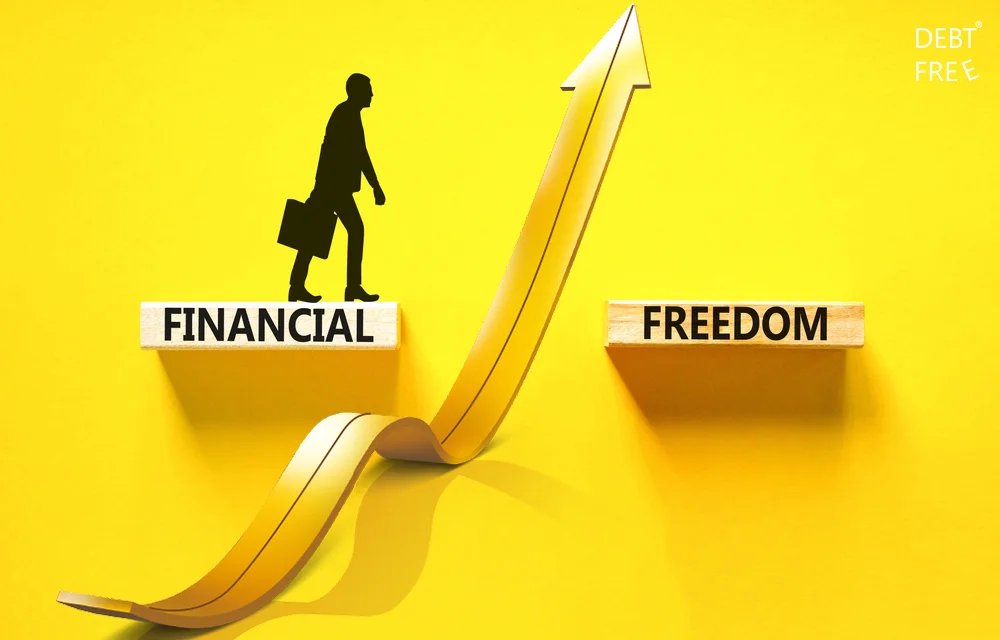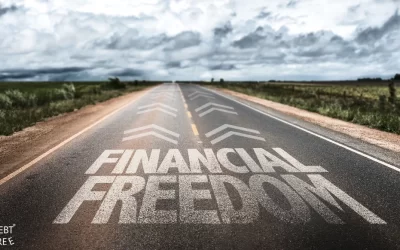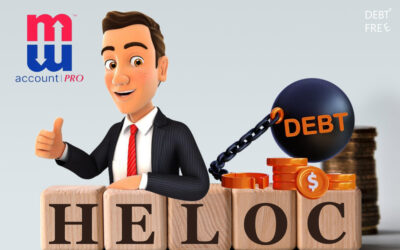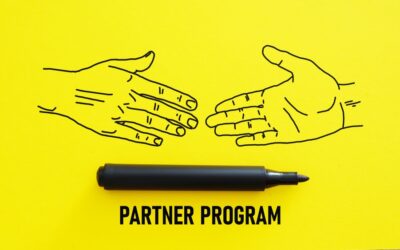
Achieving financial independence is a common goal for many individuals, as it allows them to take control of their resources without the burden of debt or credit. This way of living not only promotes economic stability but also plays a crucial role in enhancing overall mental and emotional well-being. In this comprehensive guide, we will delve into the key aspects of leading a life free from financial obligations, effective strategies to attain this state, and the multitude of benefits that come with making such a lifestyle choice.

Defining Financial Independence
Achieving financial independence means managing your resources in a way that avoids reliance on borrowed funds. This approach emphasizes self-sufficiency, where individuals depend on their earnings and savings rather than credit. It involves making informed decisions about spending, saving, and investing wisely. To achieve true financial freedom, it is essential to be mindful of your finances and avoid falling into the trap of debt. By living within your means and prioritizing saving over spending, you can pave the way for a more secure future. Taking control of your financial situation not only provides relief from the burden of debt but also opens up opportunities for a better quality of life. By following a budget plan and being disciplined with your expenses, you can gradually reduce any outstanding debts and work towards achieving financial stability. This proactive approach to managing money will ultimately lead to greater peace of mind and the ability to live without the constant worry of mounting bills or high interest payments. In essence, Achieving Financial Independence is about taking charge of your finances so that you can enjoy all the benefits that come with being financially secure. It’s not just about having enough money; it’s about having the freedom to live life on your own terms without being weighed down by debt or financial stress.
Key Characteristics of Financial Independence
- Financial Literacy: Individuals possess a clear understanding of their financial situation, including income, expenses, and savings.
- Budgeting Skills: A well-structured budget is created to monitor spending and prioritize essential expenses.
- Emergency Savings: Maintaining a reserve for unexpected costs is crucial to avoid falling back into financial obligations.
- Conscious Spending: Making deliberate purchasing decisions helps distinguish between necessities and luxuries.
Effective Strategies for Attaining Financial Freedom
Here are some actionable strategies to guide you on your journey towards financial independence:
| Strategy | Description | Benefits |
| Set Clear Financial Goals | Define both short-term and long-term objectives for your finances. | Provides direction and motivation for your financial journey. |
| Create a Comprehensive Budget | Track your income and expenses to manage your finances effectively. | Identifies areas where you can reduce spending. |
| Establish an Emergency Fund | Aim to save at least 3-6 months’ worth of living expenses. | Prevents reliance on credit during unforeseen circumstances. |
| Eliminate Existing Debt | Focus on paying off high-interest debts first to reduce financial strain. | Lessens financial stress and interest payments over time. |
| Invest in Financial Education | Learn about personal finance and investment opportunities. | Empowers you to make informed and strategic financial decisions. |
The Advantages of Living Without Financial Burdens
Choosing to live without debt offers numerous benefits:
- Enhanced Financial Security: Without monthly debt payments, individuals can allocate more resources towards savings and investments.
- Reduced Stress Levels: Financial obligations can lead to anxiety; eliminating them can significantly improve mental health.
- Increased Freedom: With fewer financial commitments, individuals enjoy greater flexibility in their lifestyle choices.
- Improved Creditworthiness: A debt-free status can positively impact credit scores, making future borrowing easier if necessary.
Common Misconceptions About Living Without Debt
Living a debt-free lifestyle is often misunderstood by many. Let’s debunk some common myths surrounding what it truly means to be financially free: 1. Myth: Being debt-free means you have no financial responsibilities. Reality: Living without debt doesn’t mean avoiding all financial obligations, such as paying bills or saving for the future. 2. Myth: Debt consolidation is the only way to achieve a debt-free life. Reality: While consolidation can help simplify payments, there are other strategies like budgeting and increasing income that can lead to financial freedom. 3. Myth: Once you pay off your debts, you’re set for life. Reality: Financial freedom requires ongoing effort and discipline to maintain a healthy financial situation. 4. Myth: Only wealthy people can live without debt. Reality: Anyone, regardless of income level, can work towards living a debt-free lifestyle with proper planning and dedication. By understanding these misconceptions, you can take steps towards achieving true financial freedom and peace of mind in your finances.
| Myth | Reality |
| Living without debt means never using credit. | Using credit responsibly can be part of a healthy financial strategy, as long as it is paid off in full each month. |
| It’s impossible to live without debt in today’s economy. | Many individuals successfully manage their finances without borrowing by adopting smart budgeting and saving practices. |
| Debt is necessary for building credit. | Credit can be built through responsible use of credit cards and timely payments, even without carrying a balance. |
Debt-free living is a financial goal that many aspire to achieve. Here are some expert comments and strategies on how to work towards this objective:
- Budgeting: Create a detailed budget that outlines your income, expenses, and savings goals. This will help you track your spending and identify areas where you can cut back.
- Emergency Fund: Establish an emergency fund to cover unexpected expenses without resorting to credit cards or loans. Aim for at least three to six months’ worth of living expenses.
- Prioritize Debt Repayment: Focus on paying off high-interest debt first, such as credit card balances, while making minimum payments on other debts. Consider using the avalanche or snowball method for effective debt repayment.
- Increase Income Streams: Look for opportunities to increase your income through side jobs, freelance work, or passive income streams like investments or rental properties.
- Live Below Your Means: Adopt a lifestyle that costs less than what you earn by avoiding unnecessary purchases and focusing on needs rather than wants.
- Avoid New Debt: Be cautious about taking on new debt unless absolutely necessary, and ensure it aligns with your long-term financial goals if unavoidable.
- Financial Education: Continuously educate yourself about personal finance management through books, courses, podcasts, or seminars to make informed decisions about money matters.
- Seek Professional Advice: If you feel overwhelmed by debt management strategies or complex financial situations, consider consulting with a certified Financial Planner for personalized advice tailored to your circumstances.
By implementing these strategies consistently over time, individuals can move closer to achieving a lifestyle free from the burden of debt.
Pros and Cons of a Debt-Free Lifestyle
Like any lifestyle choice, living without debt has its advantages and disadvantages. Here’s a breakdown:
| Pros | Cons |
| Increased financial security and peace of mind. | May require lifestyle adjustments and sacrifices. |
| Greater flexibility in financial decisions. | Potentially slower accumulation of assets if avoiding all forms of credit. |
| Improved mental health and reduced stress. | Initial challenges in building an emergency fund or savings. |
| Enhanced ability to save for future goals. | May miss out on certain benefits of credit, such as rewards programs. |
Key Takeaways for Achieving Financial Independence
To summarize, here are the top points to remember when pursuing a life free from financial obligations:
- Educate Yourself: Knowledge is power. Understanding personal finance is crucial for making informed decisions.
- Set Realistic Goals: Define what financial independence means to you and create a roadmap to achieve it.
- Practice Discipline: Stick to your budget and savings plan, even when tempted to overspend.
- Seek Professional Advice: Consider consulting with a financial advisor for personalized guidance.
- Stay Committed: Financial independence is a journey that requires dedication and perseverance.
When considering a product or program that promises debt-free living, it’s important to evaluate several key factors to ensure it aligns with your financial goals and needs. Here are some critical considerations:
- Credibility of the Provider: Research the company or individual offering the product. Look for reviews, testimonials, and any professional credentials they may have in finance or debt management.
- Program Content: Understand what the program entails. Does it offer practical strategies for budgeting, saving, and paying off debt? Ensure that it covers areas relevant to your financial situation.
- Cost vs. Benefit: Evaluate whether the cost of the program is justified by its potential benefits. Consider if there are free resources available that could provide similar guidance.
- Customization: Check if the program can be tailored to fit your specific financial circumstances rather than offering generic advice.
- Support System: Determine if there is ongoing support available, such as access to financial advisors or community forums where you can ask questions and share experiences.
- Track Record of Success: Look for evidence of success stories from past participants who have achieved debt-free living through this product.
- Legal Compliance: Ensure that any advice given complies with local laws regarding debt management and personal finance counseling.
- Realistic Promises: Be wary of programs promising quick fixes or guaranteed results; effective debt reduction typically requires time and discipline.
- Educational Value: Assess whether the product provides educational value beyond just getting out of debt, such as teaching long-term money management skills that prevent future indebtedness.
- Refund Policy/Guarantee: Check if there’s a satisfaction guarantee or refund policy in case you’re not satisfied with the program.
Conclusion
Living without debt is not just a financial choice; it’s a lifestyle that can lead to greater peace of mind and freedom. By understanding the principles of financial independence, employing effective strategies, and debunking common myths, you can pave the way for a more secure and fulfilling future. Remember, the journey to financial freedom is unique for everyone, and with the right mindset and tools, you can achieve your goals.









